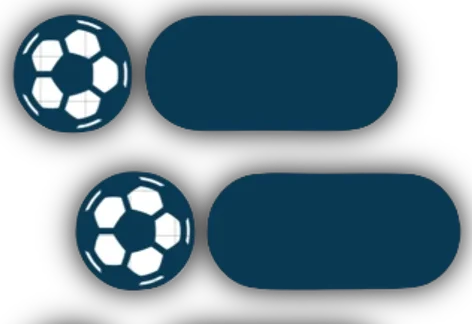
On a chilly evening in the heart of France, football fans witnessed a moment that would etch itself into the annals of sporting brilliance. It was November 2016, and Dimitri Payet delivered an assist that left spectators gasping in awe. The scene unfolded like poetry on grass—a perfectly executed rabona pass that not only showcased his extraordinary skill but also ignited celebrations among teammates and supporters alike. This wasn’t just another play; it was a statement, redefining what creativity looks like on the pitch. Let’s delve into this unforgettable moment and explore why Payet's iconic rabona will forever be celebrated in football history.
The match took place on a crisp evening in 2017. West Ham United faced off against the mighty Crystal Palace at London Stadium. Fans filled the stands, buzzing with anticipation for an exciting clash.
As the game unfolded, both teams displayed moments of brilliance. The score was locked at 1-1 when tensions began to rise. Players were feeling the pressure, and every pass mattered.
Then came the moment that would be etched in football lore—a breathtaking play sparked by Dimitri Payet. Positioned near the edge of the box, he saw his teammate making a darting run towards goal.
In one fluid motion, Payet executed a rabona assist that left everyone speechless—perfectly timed and exquisitely weighted. This was no ordinary pass; it shifted momentum and set up an unforgettable scoring opportunity amid high stakes on the pitch.
The RABONA pass is a spectacle of skill and audacity. It’s not just about flair; it requires precision and timing.
To execute this technique, the player wraps one leg behind the other to strike the ball with their opposite foot. This unconventional move can catch defenders off guard, creating opportunities out of seemingly impossible situations.
Balance is crucial. A strong core helps maintain stability while performing such an acrobatic maneuver. The follow-through must be smooth to ensure accuracy in passing.
Players often practice RABONA techniques relentlessly to master the angles and speed required for success on game day. When done right, it becomes a thing of beauty—a moment that electrifies fans.
It's a statement of creativity on the pitch, showcasing not only technical ability but also confidence in one's skills. No wonder it's celebrated when executed flawlessly during high-stakes matches!
The moment Dimitri Payet executed that jaw-dropping rabona assist, the football world erupted. Fans in the stands gasped while others leaped from their seats in sheer disbelief.
Social media was alive with excitement. Clips of the assist circulated rapidly, sparking endless debates about technique and artistry. Many hailed it as one of the best assists in modern football history.
Players weren't left unimpressed either. Fellow athletes took to platforms to express their admiration, some even attempting to replicate his finesse during training sessions.
Media outlets were quick to cover the iconic play. Analysts discussed it for days, breaking down every angle and praising Payet’s creativity and skill under pressure.
It wasn't just about a single pass; it became an emblem of brilliance that captured hearts across generations.
Dimitri Payet's rabona assist against Manchester City was a defining moment in his career. It showcased not only his flair but also his technical ability on one of the biggest stages in football.
That dazzling play elevated him from being just another talented player to a true highlight-reel star. Fans began to associate him with creativity and audacity, qualities that became trademarks of his style.
The recognition he gained propelled him into conversations about elite players in Europe. Clubs took notice, leading to lucrative offers and opportunities that shaped his trajectory.
Even today, when people discuss memorable assists or stunning moments in football history, Payet’s name often comes up. His legacy is intertwined with that unforgettable night—a testament to how one single act can encapsulate a player's brilliance for years to come.
RABONA passes have produced some of the most thrilling moments in football history. One standout instance was when Eric Cantona delivered a stunning RABONA assist for Manchester United against Sunderland in 1996. His flair and audacity left fans breathless.
Another iconic moment came from Angel Di Maria during his time at Real Madrid. He executed a perfect RABONA to set up Cristiano Ronaldo, showcasing skill and precision that defined their partnership.
More recently, Paulo Dybala demonstrated his mastery with an extraordinary RABONA goal against Genoa. The technique involved not just style but also timing, reminding everyone why he’s considered one of the best playmakers today.
These instances highlight how the RABONA transcends mere trickery; it captures the essence of creativity in football—moments that fans cherish forever.
Dimitri Payet's iconic RABONA assist transcends the boundaries of a mere football highlight. It encapsulates not only exceptional skill but also the magic that can unfold on the pitch. This moment serves as a reminder of why we love this game—its unpredictability, artistry, and flair.
Fans still talk about it today, replaying clips to relive that electrifying feeling. For players, it's an inspiration; a benchmark for creativity in their own play. Media outlets continue to analyze and celebrate such moments, highlighting how they define matches and careers.
The impact on Payet’s career is undeniable. That one assist solidified his reputation as one of football's most talented playmakers. His legacy now includes not just goals or victories but unforgettable moments that fans cherish deeply.
While many RABONA passes have adorned football history, few resonate like Payet's brilliant delivery did on that day. It stands out—not just for its execution but for what it represents: a fusion of technical mastery with pure passion for the sport.
This incredible feat will linger in our memories long after other events fade away—a testament to both Dimitri Payet’s genius and the enduring allure of football itself.

